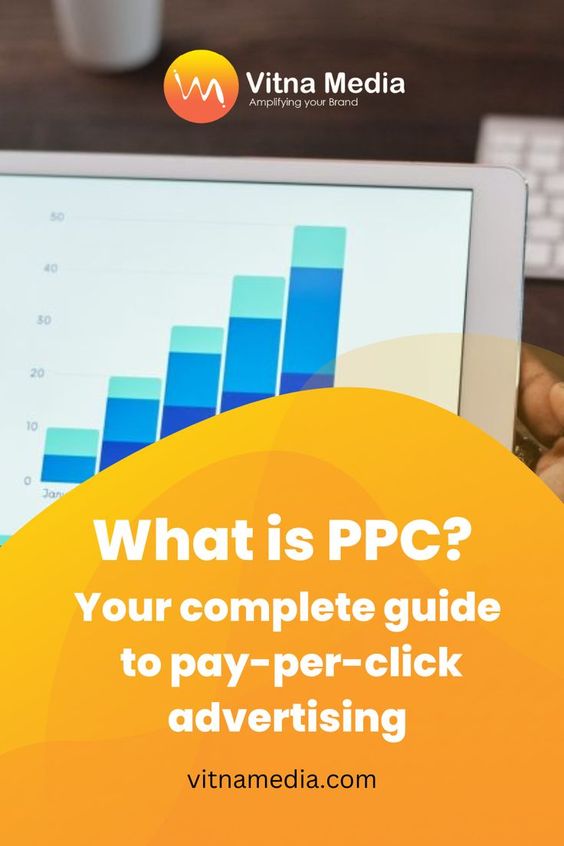Pay-per-click (PPC) advertising is a type of online advertising where advertisers pay a fee each time one of their ads is clicked. PPC ads are commonly seen at the top of search engine results pages (SERPs) and on other websites.
PPC advertising can be a very effective way to reach your target audience and drive traffic to your website. However, it’s important to set up your campaigns correctly and optimize them over time in order to get the best results.
In this article, we’ll cover everything you need to know about PPC advertising, including:
- How PPC advertising works
- The benefits of using PPC advertising
- How to set up a PPC campaign
- How to optimize your PPC campaigns for conversions
- Best practices for PPC advertising
How PPC Advertising Works
PPC advertising works by allowing advertisers to bid on keywords and phrases that their target audience is likely to search for. When someone searches for one of your keywords, your ad may appear at the top of the SERP, above the organic search results.
If someone clicks on your ad, you’ll pay a small fee to the search engine or website that displayed your ad. The amount you pay is known as your cost per click (CPC).
The Benefits of Using PPC Advertising
There are many benefits to using PPC advertising, including:
- Targeted reach: PPC advertising allows you to target your ads to specific keywords and phrases, which means that your ads are more likely to be seen by people who are interested in what you have to offer.
- Immediate results: PPC ads can start appearing at the top of SERPs immediately after you create your campaign. This means that you can start generating leads and sales right away.
- Measurable results: PPC advertising is very measurable, so you can track your results and see how effective your campaigns are. This allows you to make adjustments to your campaigns as needed in order to improve your results.
How to Set Up a PPC Campaign
To set up a PPC campaign, you’ll need to create an account with a PPC advertising platform, such as Google Ads or Microsoft Advertising. Once you have an account, you’ll need to:
- Choose your target keywords and phrases.
- Set your budget and bidding strategy.
- Create your ads.
- Launch your campaign.
How to Optimize Your PPC Campaigns for Conversions
Once you’ve launched your PPC campaign, it’s important to optimize it for conversions. This means making changes to your campaign so that you’re getting the most leads and sales possible for your budget.
There are many different ways to optimize your PPC campaigns, but some of the most important things to focus on include:
- Targeting the right keywords: Make sure you’re targeting keywords that are relevant to your business and that your target audience is likely to search for.
- Writing effective ad copy: Your ad copy should be clear, concise, and persuasive. It should also be relevant to the keywords you’re targeting.
- Using landing pages: When someone clicks on your ad, they should be taken to a landing page that is relevant to the ad and that encourages them to take the desired action (e.g., sign up for your newsletter, make a purchase, etc.).
- Tracking and analyzing your results: It’s important to track your results and analyze them regularly so that you can see what’s working and what’s not. This will allow you to make adjustments to your campaigns as needed.
Best Practices for PPC Advertising
Here are some additional best practices for PPC advertising:
- Use negative keywords: Negative keywords allow you to prevent your ads from showing for irrelevant searches. This can help you save money and improve your click-through rate (CTR).
- Use ad extensions: Ad extensions allow you to add additional information to your ads, such as your phone number, address, or website links. This can make your ads more informative and appealing to potential customers.
- Use ad scheduling: Ad scheduling allows you to control when your ads appear. This can be useful if you only want your ads to appear during certain times of day or on certain days of the week.
- Test different ad variations: It’s a good idea to test different ad variations to see which ones perform best. This can help you improve your CTR and conversion rate.
Conclusion
PPC advertising can be a very effective way to generate leads and sales for your business. However, it’s important to set up your campaigns correctly and optimize them over time in order to get the best results. By following the tips in this article, you can create successful PPC campaigns that will help you achieve your business goals.
Here are some additional tips for success with PPC advertising:
- **Start small and scale up gradually

